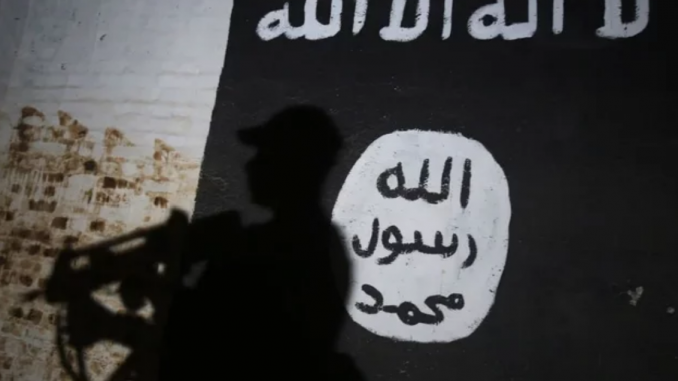
The U.S.-led military coalition killed the top ISIS leader in Iraq this week in an airstrike intended to beat back a resurging terror campaign after a double suicide bombing in Baghdad this month.
The coalition announced on Friday that Jabbar Salman Ali Farhan al-Issawi, 43, known as Abu Yasser, was killed Wednesday in a joint mission with U.S. and Iraqi forces.
His “death is another significant blow to Daesh resurgence efforts in Iraq,” said coalition spokesman Wayne Marotto, referring to the group by its Arabic acronym.
“The Coalition will continue to remove key leaders from the battlefield and degrade the terrorist organization. Terrorists-you will never live in peace- you will be pursued to the ends of the earth,” he added.
The Coalition will continue to remove key leaders from the battlefield and degrade the terrorist organization. Terrorists-you will never live in peace- you will be pursued to the ends of the earth. @IraqiSpoxMOD
– OIR Spokesman Col. Wayne Marotto (@OIRSpox) January 29, 2021
“We promised and fulfilled. I gave my word to pursue Daesh terrorists, we gave them a thundering response. Our heroic armed forces have eliminated Daesh commander Abu Yaser Al-Issawi as part of an intelligence-led operation,” added Iraqi Prime Minister Mustafa al-Kadhimi.
We promised and fulfilled. I gave my word to pursue Daesh terrorists, we gave them a thundering response. Our heroic armed forces have eliminated Daesh commander Abu Yaser Al-Issawi as part of an intelligence-led operation.
Long live Iraq and its patriotic armed forces.
– Mustafa Al-Kadhimi مصطفى الكاظمي (@MAKadhimi) January 28, 2021
While ISIS no longer holds a defined swath of territory in Iraq, it still is known to operate in the country. In an ominous reminder of the lingering danger the group poses, ISIS claimed responsibility for the double suicide bombing that killed 32 people in Baghdad last week, the deadliest strike to hit the Iraqi capital in four years.
Al-Issawi is believed to have coordinated ISIS’s operations in Iraq and relayed guidance to the group’s fighters across the country.
Coalition forces are still fighting against ISIS soldiers in Iraq, though the whereabouts of the group’s top leader, Abu Ibrahim al-Hashimi al-Qurayshi, are still unknown. Al-Qurayshi was named ISIS’s caliph following the death of Abu Bakr al-Baghdadi during a U.S.-led raid in Syria in 2019.
ISIS once controlled about a third of Iraqi territory at its height and had declared the city of Mosul to be the capital of its “caliphate.” However, its last stronghold in Baghuz, Syria was taken from the group two years ago following a sustained campaign.
The U.S. still has about 2,500 troops left on three Iraqi military bases, though questions regarding how strong of a force is needed to keep ISIS at bay has complicated plans for a full withdrawal.
*story by The Hill